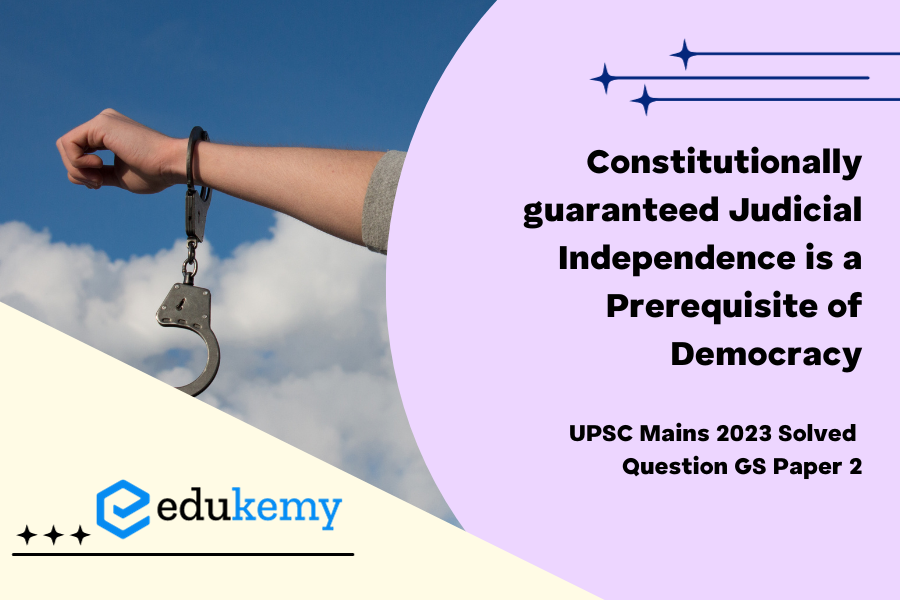UPSC Mains General Studies Paper – 1 Mains 2023
UPSC Mains Civil Services IAS Exam Question Paper – 2023
Contents
Introduction
Judicial Independence is a fundamental pillar of democracy. It is based on the principle of ‘separation of power’ where court proceedings are according to the ‘rule of law’ without any fear, favour or influence.
Body
Judicial independence is a prerequisite for democracy because it:
- Upholds rule of law: Judicial independence upholds the rule of law in democracy, where all, including the government, are bound by the law. Independent judges impartially interpret and apply the law, preventing abuse of power and ensuring equal treatment for all citizens.
- Ensures supremacy of law.(part of basic structure doctrine as mandated by Kesavananda Bharati case)
- Safeguarding individual rights:
- Expanded scope of article 21 in Maneka Gandhi case(1978)
- Addressed sexual harassment issue in Vishakha case(1997)
- Right to sexual autonomy, privacy and equality in Navtej Singh Johar case(2018)
- Right to privacy as fundamental right held in Puttaswamy case(2017)
- Facilitates dispute settlement as the final interpreter of the constitution.
- Check on dictatorship: Minerva Mills case (1980) held some provisions of 42nd amendment act as unconstitutional.
Therefore keeping in mind the importance of judicial independence, the constitutional framers guaranteed it by:
- Financial independence of judges by non-adjustment of their emoluments.(article 125(2))
- Removal of judges only on President’s proclamation and on proven grounds of misbehavior and incompetence (articles 124,217)
- Judges to be appointed in consultation with the senior most judges(article 124(2); currently the collegium of judges.
- State to work towards separation of executive and judiciary (article 50)
- Contempt of court provisions to maintain the sanctity of courts. (articles 129, 142(2), 215).
Challenges – Sanjeev kumar _Shinu
Conclusion
Hence, the independence of judiciary was affirmed in S.P GUPTA vs Union of India where the judiciary reiterated that its independence is integral to the constitutional framework and thus a part of the basic structure of the constitution. Therefore Its sanctity should be upheld for a healthy democracy notwithstanding the freedom of speech.
In case you still have your doubts, contact us on 8792740517.
For UPSC Prelims Resources, Click here
For Daily Updates and Study Material:
Join our Telegram Channel – Edukemy for IAS
- 1. Learn through Videos – here
- 2. Be Exam Ready by Practicing Daily MCQs – here
- 3. Daily Newsletter – Get all your Current Affairs Covered – here
- 4. Mains Answer Writing Practice – here
Visit our YouTube Channel – here


